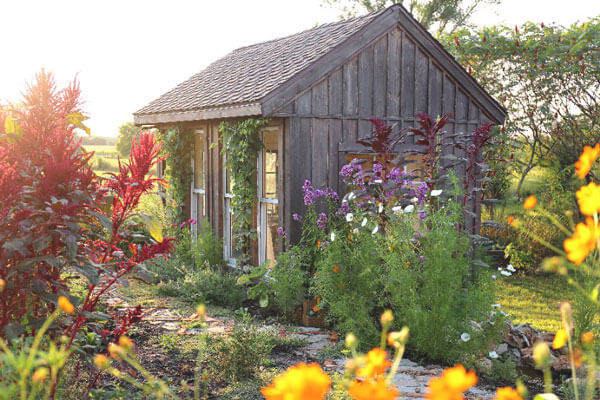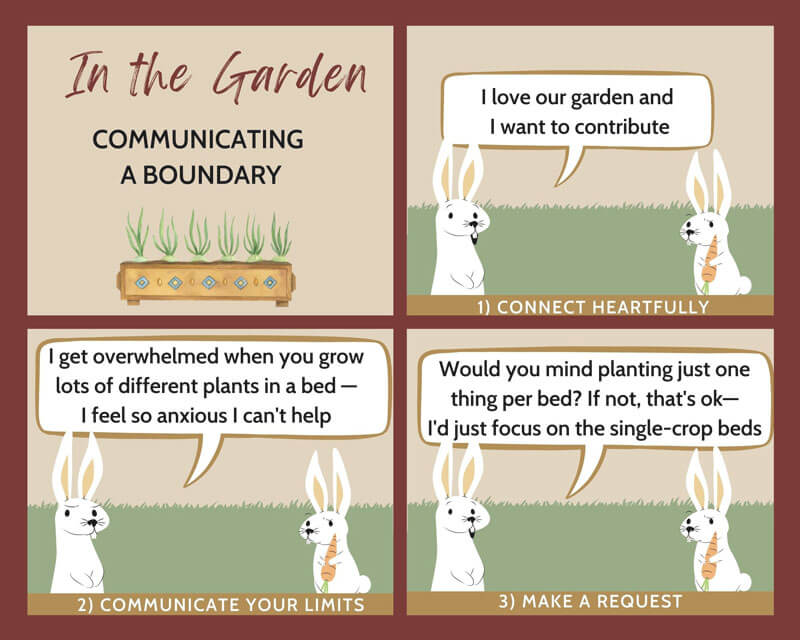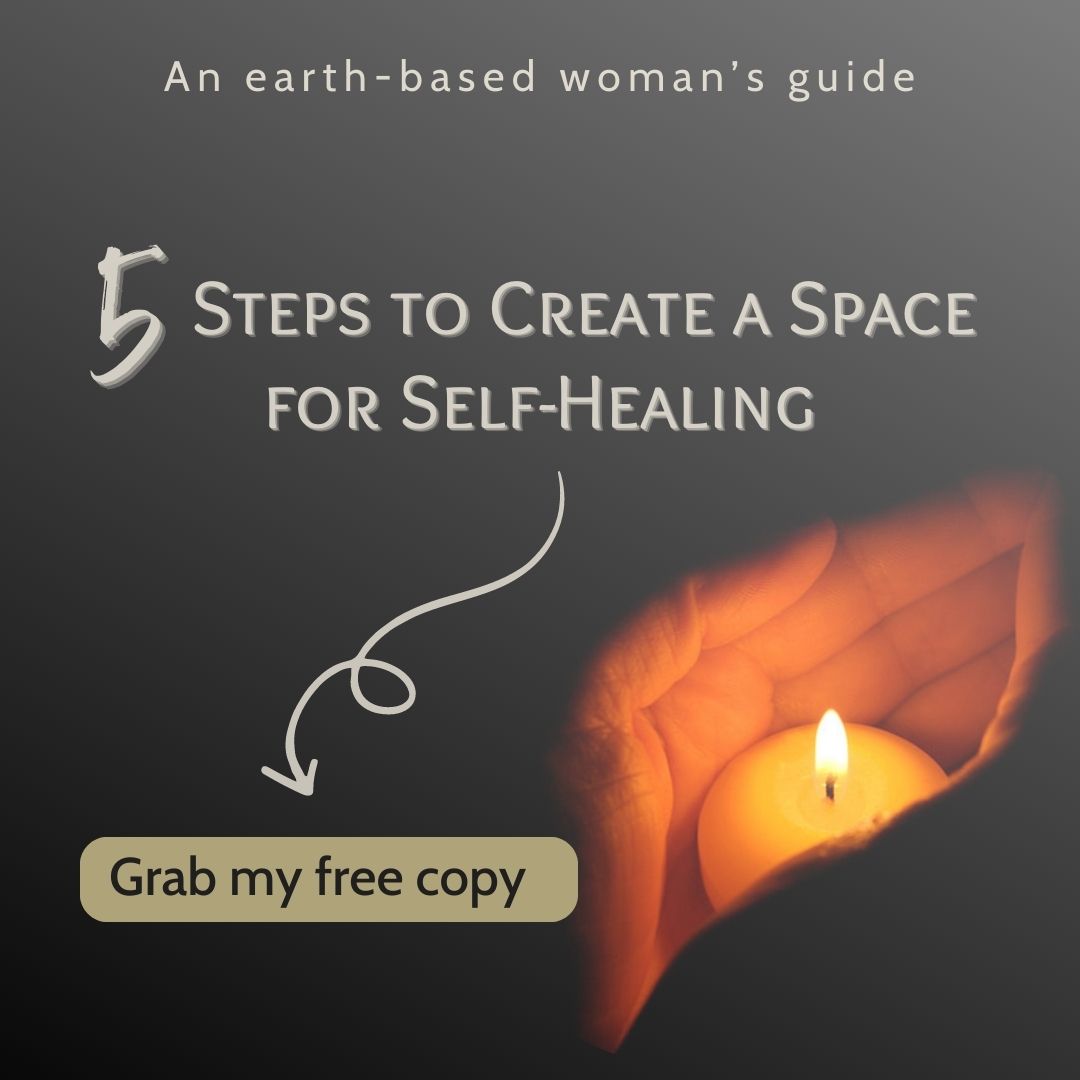3 Ways to Set Boundaries in Relationships Wisely

by Corinna Wood
You know you need to set boundaries in relationships. You may feel tired, frustrated, confused, or resentful. You’re wanting connection—and also wanting a healthy relationship with yourself.
You know it’s your responsibility to take care of yourself. You’re the only one on the planet whose job it is to take care of you.
At the same time, you don't want to build walls around yourself. You don’t want to compromise intimacy in a relationship.
You may think boundaries are about keeping others out.
Sometimes they are, sister. For your own health and sanity.
 Yet even within a healthy relationship, boundaries are essential for creating a space for you to thrive.
Yet even within a healthy relationship, boundaries are essential for creating a space for you to thrive.
Letting your loved ones know what you need to be true to yourself is actually a way to build mutual respect, trust, and intimacy.
Let's explore how that works.
Ready to dive into 3 ways to set boundaries in relationship to loved ones?
Table of Contents
-
3 ways to set boundaries in relationship to loved ones
1) Space and time
2) Honor your own limits
3) Reduce closeness -
Intimacy in relationships is respect
-
Your body knows
3 ways to set boundaries in relationship to loved ones

Why does it seem so uncomfortable to set boundaries in relationships?
Well, as a woman, you were probably enculturated to put the needs of others before your own, especially in your close relationships.
You may have been told it was more important to make others happy—regardless of whether that leaves you feeling unfulfilled or unhappy.
So then what do we do when things aren’t working for us, when something is unacceptable to us?
Of course, the default—that is all too common—is we attempt to change another person.
I understand that sister, I’ve been there too.
Yet, as they say in the common meme in psychology, “You can’t change another person. you can only change yourself.”
So what can you do?
You can set self-loving boundaries to let others know, in a kind and compassionate way, what works for you.
To create a boundary in order to take care of yourself is an act of personal power.
Remember, you’re responsible for your own health, well-being and how you spend your time and energy.
And before you dismiss that as unimportant, consider this—your time and energy are your life force.
Think of boundaries as a container, just like you might have a fence around your garden, a bowl to hold water or a basket for your herbs. Boundaries help you to define who you are and to differentiate yourself from others.
Boundaries are a conscious choice informed by reconnecting with yourself and your needs.
Not sure where to start? Let's explore 3 different ways to set boundaries in your relationships—whether a partner, family member, or close friend.
1) Space and time boundaries to preserve your life force
 First, consider boundaries around how you spend your time, energy and resources.
First, consider boundaries around how you spend your time, energy and resources.
As Ann Dillard wrote, “How we spend our days is, of course, how we spend our lives.”
Maintaining your own boundaries in a relationship helps you protect your life force, giving you the choice of when and where you wish to direct it.
If you’re feeling overwhelmed, depleted and burned out, it can be hard to be fully present with those you love.
In other words, creating space for self care can actually improve your relationships with others.
In your relationships, consider how and when you want to spend your time together. Notice what recharges you and when you begin to feel drained. And know it is okay to set some limits.
Here’s some examples to inspire your own creative ideas.
Boundaries around time
- Scheduling alone time for a walk or bath weekly (or nightly) to decompress and relax
- Blocking off uninterrupted time during your day
- Limiting your use of electronic devices before bedtime
Boundaries around space
- Closing the door or creating a “room of one’s own,” as Virginia Woolf says, to allow time and space for creative endeavors
- Sleeping alone certain nights of the week
- Creating a corner of a room or a small table for displaying art, candles, or special images that bring you joy
Wondering where to start? Grab my free guide on 5 Steps to Create a Space for Self-Healing (pdf) to support your journey of healing and wholeness.
2) Honor your own limits while seeking middle ground
 Within a relationship there are often things you cannot change all by yourself. Perhaps it’s about dynamics in the relationship, shared activities or patterns of behavior.
Within a relationship there are often things you cannot change all by yourself. Perhaps it’s about dynamics in the relationship, shared activities or patterns of behavior.
While you can’t control another person’s choices, you can make requests in a way that respects both yourself and the other person.
Here’s the rub.
When we think of requests, what comes to mind is usually a demand. As in, “You have to do this for me.”
A request is different from a demand in that it honors the needs of both people as equally important. Neither person is forced to set aside their own needs for the sake of the other.
Requests are based in the belief that all of us naturally want to contribute to the well being of another.
And it is okay for the other person to say no.
Often a no can lead to collaboration of alternative choices that might be able meet both of your needs.
If your collaboration doesn’t result in an alternative that is within your limits, you’re willing to meet those needs of yours in another way.
So even as you’re seeking middle ground, you honor your own limits.
That means you know your limits. You respect your limits. You communicate your limits.

Seeking middle ground while respecting your limits
First, prepare by yourself:
- A heartful place: Set an intention to come from a loving, heartful place.
- Your request: Consider what request you want to make to meet your needs—knowing that the other person may or may not change, and you’re willing for them to say no.
- Your limits: Before making a request, ask yourself, “if nothing changes, how else might I meet the underlying need for my own health and well-being? What could I do differently to support myself in this situation?”
Then share with the other person:
- Connect heartfully: Start from a place of heartful connection. Speak to what you appreciate or desire in a way that supports both of you.
- Communicate your limits: Speak to your own needs and communicate how you would address those needs and limits.
- Make a request: Make your request from a heartful place, willing to accept no as an answer.
A story of communicating your limits to a loved one
 To give you an example of honoring your limits while seeking middle ground, let me share a story.
To give you an example of honoring your limits while seeking middle ground, let me share a story.
My partner and I have different approaches to gardening. I like to grow multiple crops in the same bed at once.
She finds it difficult to see what’s what—and whether poisonous creepy crawlies might be sneaking in.
She requested, “I enjoy tending the garden together and I’d love to help. However, as summer comes on, I find it overwhelming and anxiety producing.”
“Would it be possible to plant a single crop per bed? If you still wanna plant multiple crops, I'm okay with that—just know that I won’t be able to support you with weeding and maintaining those beds.”
Do you see how she honored her own limits?
In making her request, she stated what her preferences were, while also giving me space to say no. She also made it clear there was a limit to how much she would participate if I chose to continue in my style of biodiverse gardening.
Without any criticism or blame, her request came with a boundary related to her level of participation.
By stating a boundary, it reduced the potential for tension in our relationship out in the garden.
3) Reduce closeness to healthy and appropriate levels
 I used to believe I should open up to everyone—and that if a relationship was difficult, I just needed to try harder to make it work.
I used to believe I should open up to everyone—and that if a relationship was difficult, I just needed to try harder to make it work.
Like most of us, I thought that I owed the other person a certain amount of closeness based on the type of relationship.
I thought their role "should" determine our level of intimacy—housemate, family member, partner, friend, co-worker, etc.
When expectations loom large, remember this...
Intimacy is a choice, not an obligation.
You get to decide how safe you feel, and whether there is an atmosphere of respect and valuing.
You get to choose the level of intimacy in your relationships.
If the relationship isn't meeting your needs for safety and respect, continuing to bare your soul more and more may just be opening yourself up to emotional trauma and drama. Criticism, shame, and blame does that.
If you’ve tried setting boundaries and limits and those have not been honored, it may be time to consider reducing your level of closeness with that person to a healthy and appropriate level.
You can do so with kindness and respect for both of you.
Examples of reducing the level of intimacy in relationships:
- Directing conversations to more casual topics instead of “baring your soul”
- Meeting in public places instead of one another’s homes, driving separately so you're free to leave any time
- Redefine your relationship (eg, decrease contact, move out, reduce sexual intimacy, or disengage altogether)
Intimacy in relationships is respect
 You might notice that the idea of setting boundaries still feels a little scary.
You might notice that the idea of setting boundaries still feels a little scary.
It's natural to feel worried about losing closeness, companionship, and connection.
You want intimacy in your relationships.
Of course you do. We all do.
What is intimacy in relationships?
Consciously or not, you may have taken in societal messages that building intimacy in relationships is about taking care of others’ needs. Or maybe you learned that sacrificing your own needs was a sign of love.
Not so.
Being true to yourself—including communicating your needs clearly and lovingly—is essential for authentic intimacy.
Intimacy does not demand that the other change. Authentic intimacy is rooted in respect for yourself—and respect for them.
After all, love is respect—including self respect.
With respect, we feel safe to express ourselves without fear of criticism— over time we gain trust.
And trust invites intimacy.
So healthy relationship boundaries actually provide an opportunity to deepen authentic intimacy in relationships.
Your body knows when you need to set healthy relationship boundaries
 If you’re uncertain about whether to set a boundary in a relationship or not, tune into your body's signals.
If you’re uncertain about whether to set a boundary in a relationship or not, tune into your body's signals.
You may notice your back tensing up—or butterflies in your belly. Is your jaw tight?
As holistic healing recognizes, when we try to deny or stuff so-called negative emotions, they still live in our bodies.
Make those feelings and sensations your friend. We're talking about your rough feelings like anger, sadness, or frustration—which indicate underlying unmet needs in your life.
So tune into your own innate wisdom as you pay attention to what your body is telling you.
Ask yourself:
- What feelings and sensations am I experiencing in my body?
- Do I feel tension in my belly? Or anywhere else?
- Do I feel drained by certain interactions or people?
These are all clues about your needs for safety and respect. Notice the patterns of when you feel these sensations and use that information to guide you in setting boundaries with loved ones.
As you mull over these three ways of setting boundaries, jot down some ideas in your journal about relationships that need tending, boundaries you may want to set, or requests you would like to make.
Trust your intuition. Your body will guide you.
It’s healthy to set boundaries in relationships
 You’ve probably heard the adage, “You can’t change another person. You can only change yourself.”
You’ve probably heard the adage, “You can’t change another person. You can only change yourself.”
So how do you actually live that truth?
You set boundaries in relationships.
Setting healthy relationship boundaries is rooted in respect and valuing of yourself and the other person
A boundary is a way of saying, “This is what I need to be true to myself.”
Your boundary is what you need to be grounded, to show up in authenticity, and to offer your gifts to the world.
It’s a commitment to your own self-care and autonomy within a relationship.
Boundaries are about creating a space for you to thrive within the container of the relationship. By setting boundaries to promote your self care, you allow yourself to be more present in your relationships.
Ultimately, healthy relationship boundaries support intimacy in relationships grounded in mutual respect, safety and trust.
So may it be for you!
______________
Spread the wise woman ways! Link to this article from your website or share with your friends using this button~
Comments ~ what stands out for you today?







